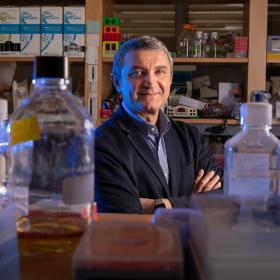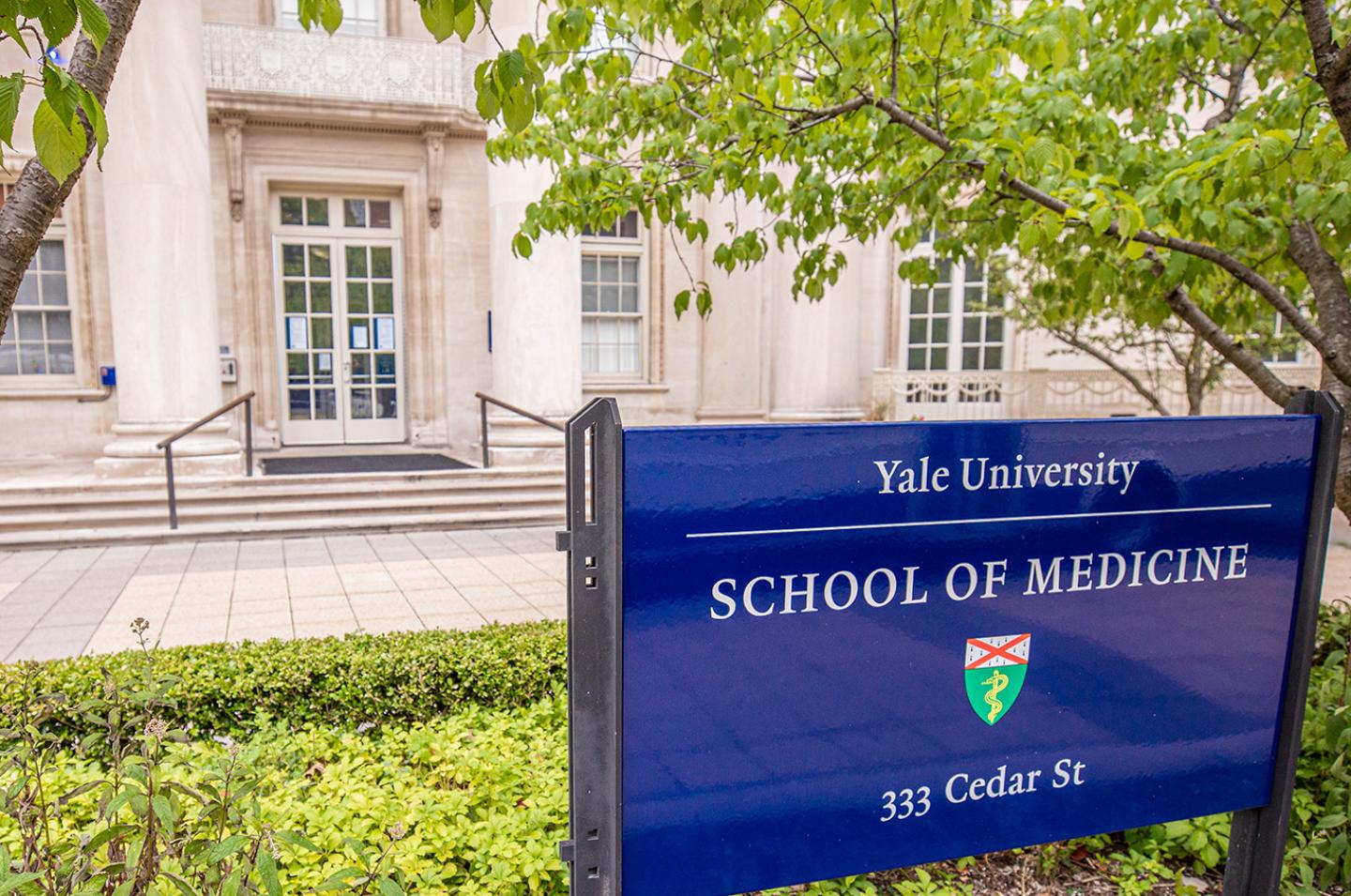



At first glance, a hibernating ground squirrel and a person with the flu appear to have little in common. But both are protected by physiological systems that have evolved to help them survive challenging conditions. Evolutionary principles tell us that all living systems—including humans, animals, and plants—allocate their precious resources to promote three major goals: growth, reproduction, and survival. Each of these efforts, driven by fundamental biological processes, is essential for life and the preservation of species. But not all of them are well understood.
“We know a lot about growth and reproduction,” said Ruslan Medzhitov, Sterling Professor of Immunobiology at Yale School of Medicine. “In contrast, we know little about the biology of survival.” To fill this gap, Medzhitov and his research team are working to uncover the mechanisms underlying survival strategies—also known as maintenance programs—an endeavor that will both advance fundamental biology and provide new therapeutic targets to prevent and treat disease.
Recognizing the potential to improve human health on a grand scale, the Blavatnik Family Foundation has donated $5 million to Medzhitov’s research into the biology of survival. The contribution continues an important chapter in philanthropy for medical research at Yale: In 2013, the Blavatnik Family Foundation, led by American industrialist and philanthropist Len Blavatnik, granted Medzhitov and fellow immunobiologist Richard Flavell $10 million to further develop a groundbreaking theory linking inflammation and chronic disease. In 2016, the foundation gave $10 million to establish the Blavatnik Fund for Innovation at Yale, which provides support to expedite the development, application, and commercialization of life science breakthroughs taking place on campus. Last year, the foundation expanded the fund with a $15 million grant.
“The Blavatnik Family Foundation has been an enthusiastic and longstanding supporter of science at Yale, and I thank Len Blavatnik for his continued generosity,” said President Peter Salovey ’86 PhD. “This latest gift and the important research it enables will advance our knowledge of human biology.” Yale School of Medicine Dean Robert Alpern said, “The generous, farsighted support of the Blavatnik Family Foundation equips our researchers to pursue essential questions and find new strategies for improving human life. I am grateful for the foundation’s many contributions.”
Superpowers for survival
When the surrounding environment is ideal—food and water are plentiful, the temperature is neither too hot nor too cold, there are no harmful pathogens, toxins, or predators—our bodies can put resources toward growth and reproduction. But when the environment becomes unfavorable and we lack necessary nutrients or are faced with threats, maintenance programs take over. Separate from growth and reproduction, but equally as important, maintenance programs conserve or reallocate the body’s resources in order to promote survival.
In the animal world, one striking example of this process is hibernation. As temperatures drop, some animals engage in life-prolonging tactics—lowering body temperature, respiration, and heart rates, and passing months without water, while gaining remarkable abilities to fight infection, heal wounds, and withstand below-freezing temperatures—abilities that Medzhitov likens to superpowers. “When in that state, the animal becomes highly resistant to stressors and damage,” Medzhitov said. Similar programs are essential to our own physiological toolkit. For example, we see their effects in comas—initiated during severe threats to human survival—and protective effects that have been observed with fasting.
Medzhitov’s research group is now tackling several fundamental questions about survival programs, including the control of maintenance programs, how cells enter maintenance modes, which maintenance programs contribute to aging, and whether sleep—the primary function of which is still unknown—is a type of periodic maintenance program.
Another avenue of investigation involves which brain circuits control maintenance programs. The hypothalamus, which governs many processes including appetite and temperature, also controls growth and reproduction. “Because the hypothalamus controls two of the three biological programs, it’s likely the hypothalamus controls the third as well,” said Medzhitov, who is exploring that hypothesis in the lab. “The continued support of the Blavatnik Family Foundation will enable my lab to pursue these essential questions and find new strategies for improving human life.”
From basic science to medicine
Understanding human maintenance programs is crucial. Knowing how they function could, for instance, allow physicians to engage their protective benefits in situations where they are needed. Imagine being able to better prepare the body for an intense and complicated surgery, to protect organs that are being harmed by disease, or to limit damage resulting from a heart attack or stroke.
A deeper understanding of maintenance programs could also allow doctors to boost them when they begin to fade. As we age, maintenance programs wane, and without them, our bodies become susceptible to age-related complications and disease. “If we understand how to enhance maintenance programs, how to prolong their action, our bodies will be able to run longer,” Medzhitov explained. “There are many important reasons why understanding these functions is really critical, not just from the basic perspective, but also regarding their applications to medicine.”
“The Blavatnik Family Foundation is committed to supporting research that has the potential to significantly improve human health,” said Blavatnik. “By deepening our understanding of human biology, the work taking place at Yale will identify important new approaches for preventing and treating illness and promoting longer, healthier lives.”
